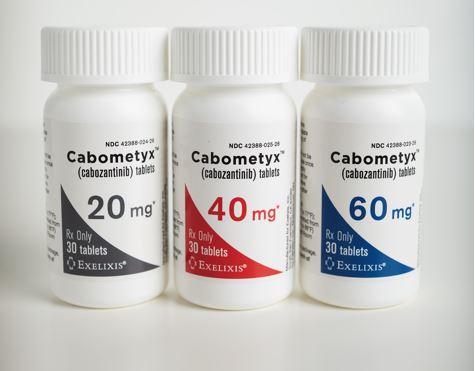Exelixis' Cabometyx misses survival target in liver cancer trial

Exelixis has suffered a blow to its efforts to expand the use of Cabometyx into additional indications after reporting mixed results in a phase 3 trial in liver cancer.
The COSMIC-312 study is comparing Cabometyx (cabozantinib) given alongside Roche's cancer immunotherapy Tecentriq (atezolizumab) to Bayer's Nexavar (sorafenib) as a first-line treatment for hepatocellular carcinoma (HCC), the most common form of liver cancer.
On the plus side, the Cabometyx/Tecentriq combination reduced the risk of disease progression or death by 37% compared to Nexavar, a standard first-line therapy for HCC, meeting one of the primary endpoints of the trial.
The multikinase inhibitor was however unable to show an improvement on overall survival (OS), the other main objective and one which is typically tougher to meet, which was described as "disappointing" by Exelixis' chief executive Michael Morrissey.
Exelixis also said that the chances of showing an OS improvement before the final analysis of data from COSMIC-312 – expected early next year – is also low.
HCC is the most common form of liver cancer and the fastest rising cause of cancer-related death in the US, and moving Cabometyx into the first-line category is an important element of Exelixis' plan to grow its US sales to nearly $4 billion by 2025.
The readout is therefore a setback for Exelixis' ambitions for Cabometyx, which just a few months ago claimed a much-anticipated approval alongside Bristol-Myers Squibb's checkpoint inhibitor Opdivo (nivolumab) in previously-untreated renal cell carcinoma (RCC).
Shares in Exelixis were down more than 11% pre-market at the time of writing as investors tried to gauge the consequences of the data. Exelixis said it plans to "discuss the trial results and next steps for a potential regulatory filing with the FDA".
Cabometyx is already approved as a second-line treatment for HCC in people who have previously received Nexavar, along with first- and second-line approvals for RCC, with sales reaching $720 million last year.
An earlier attempt to secure approval for Cabometyx in metastatic castration-resistant prostate cancer ended in failure, although Exelixis is still going after that indication with a Cabometyx/Tecentriq regimen that could be submitted for approval this year if clinical trial results are positive.
Ipsen has exclusive rights for the commercialisation of Cabometyx outside of the US and Japan and recorded €289 million ($344 million) in sales for the drug in 2020.













